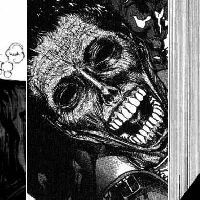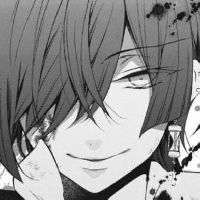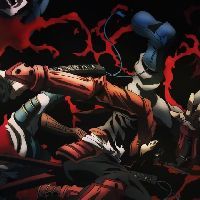Assassination Classroom

HoyvinGlavin64: Ah, good old AssClass. In case you happen to be unfamiliar with the hit manga Assassination Classroom. and the two seasons of anime it spawned, let me emphasize that the show doesn’t actually focus all that much on asses. Instead, it focuses on tentacles… Oh wait, that doesn't sound right either. It’s Shonen Jump, not hentai, get those images out of your filthy mind!
It’s actually about a classroom taught by a genetically engineered octopus nicknamed Koro-sensei, and his students that have to assassinate their teacher before he destroys the earth. There’s only two issues: he’s seemingly invincible, always recovering from even the most elaborate attacks, and he’s actually a great teacher!
How does one come up with such an original, off-beat idea and make it a success? Speaking at New York Comic Con, manga-ka Yusei Matsui told a packed panel of 600 fans: “I can’t tell you.”
… that was a joke.
In seriousness, he answered “instead of thinking about what I want to write, I actually think about what my audience would want to read… because it’s coming from the audience… it has something well-balanced.” A somewhat surprising answer, given how many artists would say the opposite; that the most important thing to making something good is to focus on what you’re interested in as opposed to an imagined audience.
Yet Matsui’s imagination is powerful, and he certainly doesn’t come off as someone who’s just following trends. His creativity, in fact, is in large part due to being an outsider to the general anime and manga world. He doesn’t watch anime, and the reason he started drawing manga in the first place? His parents wouldn’t let him buy manga, and he thought “maybe I should just draw my own.”
It’s not that Matsui is free of influence from other manga. He cites Jojo’s Bizarre Adventure, Parasyte, Dragon Ball, and Captain Tsubasa as among the favorites he’d sneak as a child. Yet the combination of wanting to please the crowd while ignoring the trends and conventional wisdom of what a crowd-pleaser is supposed to be might be the key to understanding why AssClass can be so weird and yet such successful mass-market entertainment at the same time.
Spice and Wolf

Littoface: On the other end of the spectrum sits Isuna Hasekura, whose ideas for Spice and Wolf were hardly an appeal to a mass market. The light novels (and subsequent manga and anime) follow the story of a trader and his wolf-eared harvest goddess companion through a Medieval setting. Part of the focus is on their relationship, of course, but it also delves heavily into the economics of the time. The premise is difficult to explain, even in Japan. Hasekura describes it as simply as he can: "It's a fantasy with no fighting. And it's about economics and a girl with animal ears." Yet as unusual as the concept may be, Holo and Lawrence have captured the hearts of many, showing that going off the beaten path is sometimes as effective as catering to the fans.
Hasekura worked on his project for five years, then delayed for another five before the books even saw the light of day. Between the obscure topic and the fact that his work was a debut, he never expected the level of response that the books have received. Now he's well into two sequels, is assisting in a VR animation, and hopes to turn his attention to the Mediterranean for his next project, another historical fantasy.
So how did an aspiring author set out to write a debut light novel about economics, of all topics? While looking up a book about the Crusades, Hasekura stumbled onto a volume titled "Gold and Spice." The book sparked his interest in the topic, as well as "The Golden Bough" and the manga Sakuran. Holo was born from Hasekura's desire to reproduce a scene from Sakuran with his own character. Lawrence followed soon after, riding in on his horse and creating a strong opposite for Holo. (The horse has no name. "I'd forgotten to name him," Hasekura admits.) As the books have no physical battles, Lawrence also helped fill in with intellectual battles instead.
Hasekura took the adage "write what you know" and completely threw it out. He wrote about Medieval Europe -- Japanese history was just not "showy" enough, he says. He spent countless hours poring over books about economics from that time period, a topic he had never studied before. The result, to his own surprise more than anyone else's, was pure gold.
Now Hasekura is swamped with promotional art and even doujinshi of his characters (he even has a favorite fan artist). But his interaction with the actual manga and anime creations was nearly nonexistent. When asked if he had any concerns regarding the artists' depictions of his characters for the manga, Hasekura holds out his hands in front of his chest and notes: "I was concerned about Holo's boob size. I was praying that her boobs wouldn't be too big." Are they? "They're still a little bit bigger than they ought to be," he admits. Aside from that, he's quite happy with the results, but now you know to mentally shrink Holo's chest a bit when reading the manga. You know, for accuracy.
All kidding aside, Hasekura has turned a bland and unusual topic into a mainstream hit just by writing about something that interested him. If 17 books in five years sounds like a lot, Hasekura brushes this off with a wave of the hand. That's nothing; a good author, he notes, can churn out a book per month. Still, it was not always easy going, and he shares that there were times throughout his writing that he had wanted to give up. At those moments, he made sure to rotate his writing spots and took care not to let his "mental energy" run out. How? "I prayed. I'm not kidding. To any God."
Aside from this, Hasekura has only one bit of advice for aspiring writers: "Just write."




